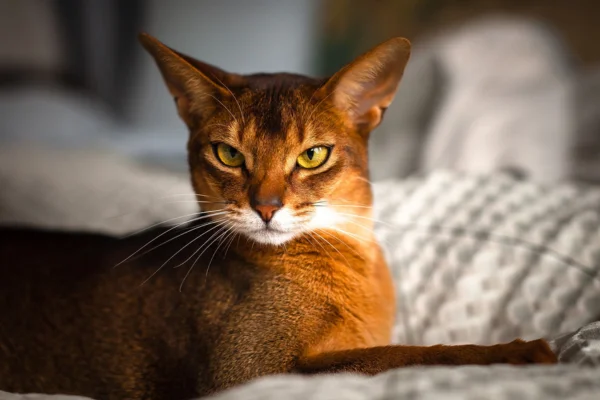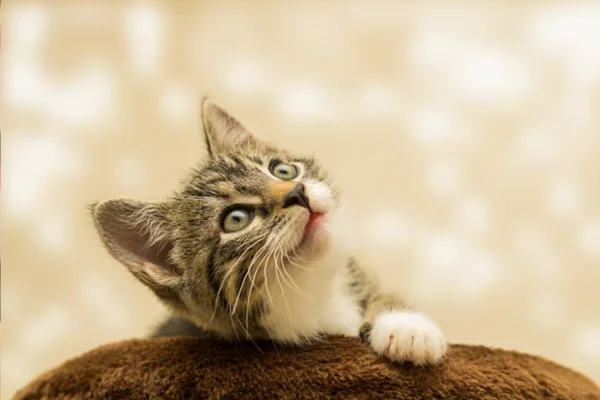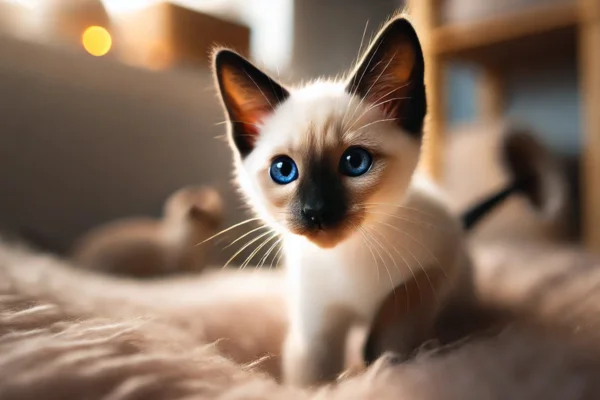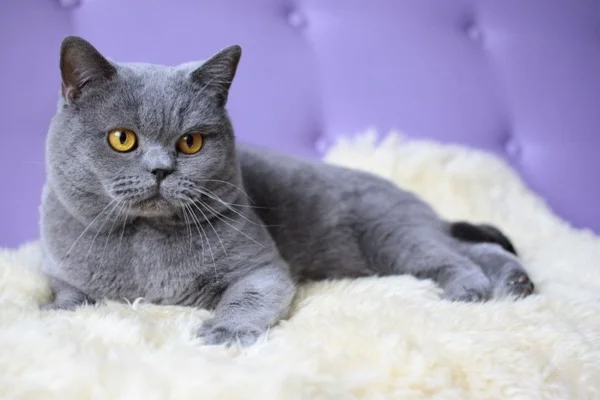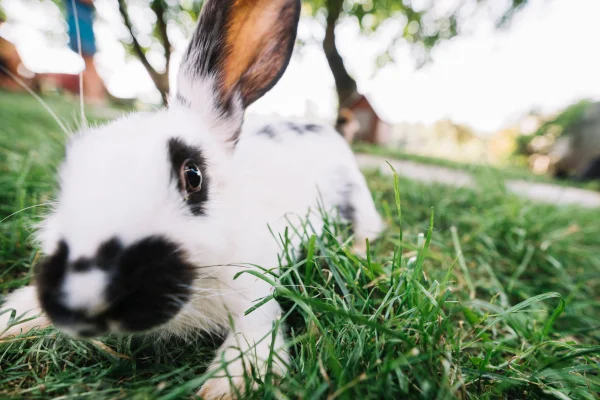The Fascinating Universe of the Abyssinian Cat: Beauty, Intelligence and Charisma
When we think of exotic cats with wild beauty and a captivating temperament, the image of the Abyssinian cat inevitably comes to mind. This breed, which seems to have come straight out of the times of the pharaohs, is known for its elegant appearance, keen intelligence and vibrant personality. In this article, we'll explore the fascinating history of the Abyssinian cat, its physical and behavioral characteristics and the care required to keep a specimen of this breed healthy and happy.
A Brief History of the Abyssinian Cat
The origin of the Abyssinian cat is shrouded in mystery and legend. It is believed that these cats are direct descendants of the felines worshipped in ancient Egypt, due to their resemblance to the representations of cats on Egyptian artifacts. However, modern documentation of the breed began in the 19th century, when cats with similar characteristics were imported into England. The name "Abyssinian" refers to Abyssinia, present-day Ethiopia, although there is no concrete evidence that the breed originated there.
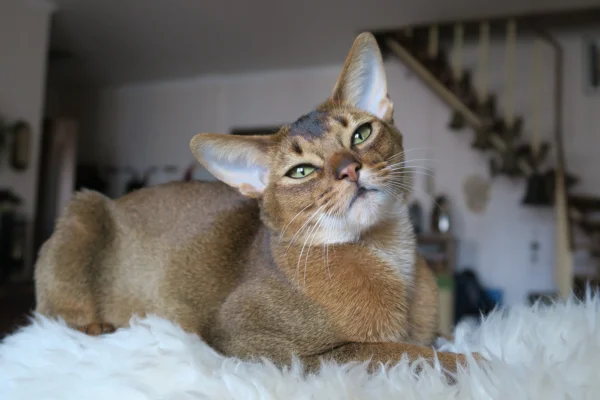
Distinctive appearance
One of the first things that strikes you about the Abyssinian is its majestic appearance. They have a slender, muscular, medium-sized body with long, elegant legs that give them a graceful appearance. The head has a soft triangular shape, with large, alert ears that give them an ever vigilant expression.
Contents
The large, almond-shaped eyes, which vary in colors such as green, gold and amber, are another striking feature. The Abyssinian's short, dense coat is one of its most notable characteristics. Each strand of hair is marked by several stripes of color (ticking), which gives the cat a special shine and an almost iridescent appearance. The most common colors are ruddy (a reddish brown), blue, fawn and sorrel.
Personality and Behavior
Abyssinian cats are known for their active and curious nature. They are extremely playful and love to interact with their owners, making them real companions. They like to be at the center of attention and often follow their owners around the house, taking an active part in daily activities.
Because they are so intelligent, Abyssinians need constant stimulation to keep them entertained. Interactive toys, scratchers and even clicker training activities are excellent ways of exercising their minds. It's important to remember that, despite their independent nature, they don't like to be left alone for long periods and can develop destructive behaviors if they don't have enough company or activities.
Care and Health
The Abyssinian's short coat doesn't require excessive grooming, but weekly brushing is recommended to remove loose hairs and keep the coat shiny. Bathing is rarely necessary, unless the cat has soiled itself significantly.
Like any other breed, Abyssinians can be predisposed to certain health conditions. Among the most common concerns are dental problems, kidney disease and pyruvate kinase deficiency, a genetic condition that affects energy production in red blood cells. Regular visits to the vet, a balanced diet and maintaining a safe and stimulating environment are essential to ensure the health and well-being of your Abyssinian cat.
Food
Food is a crucial aspect of keeping an Abyssinian cat healthy. They need a balanced diet that meets all their nutritional needs. It is advisable to offer high quality food, both dry and wet, which contains a good amount of animal protein. Avoiding foods with lots of carbohydrates and artificial additives is important to prevent long-term health problems.
In addition, some owners choose to supplement their cat's diet with raw or cooked food, always following veterinary advice. Hydration is also essential, so make sure your cat always has access to fresh, clean water.
Socialization and Integration
The Abyssinian is a social cat who generally gets on well with other animals and children. However, introducing new members to the family should be done gradually and under supervision to avoid unnecessary stress. These cats tend to adapt well to new situations, but each individual may react differently.
Environmental Enrichment
To keep an Abyssinian happy, it's essential to provide an enriched environment. This includes vertical spaces such as shelves and cat trees, which allow the feline to explore and observe its territory from different perspectives. Toys that encourage hunting and interaction, such as wands with feathers and balls with rattles, are also much appreciated.
Abyssinians love windows, where they can observe the outside world. Installing shelves or window beds can provide hours of entertainment. In addition, scratching posts are essential so that they can sharpen their claws and exercise their natural instinct to scratch.
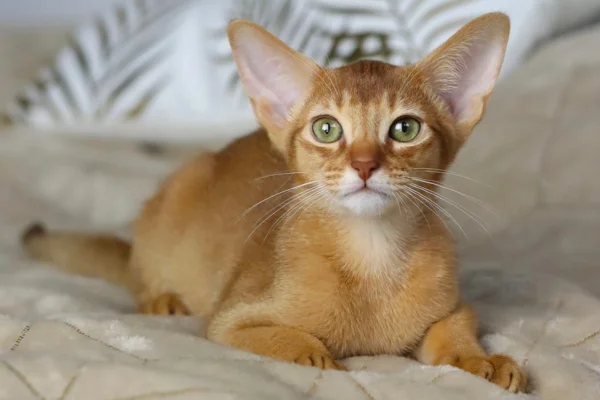
Training and Intelligence
The Abyssinians' intelligence makes training a relatively easy task. They can learn basic commands, tricks and even how to walk on a leash. Using positive reinforcement, such as treats and praise, is the best way to teach these cats new skills.
Final considerations
The Abyssinian cat is a wonderful choice for those looking for a loyal, intelligent and active companion. Their exotic beauty and engaging personality win hearts wherever they go. However, it's important to remember that this breed requires time, attention and constant stimulation. Providing a rich and interactive environment is essential for an Abyssinian to express its full potential.
When you decide to adopt an Abyssinian, make sure you are prepared to dedicate yourself to meeting its physical and emotional needs. These cats are not just pets; they become an integral part of their owners' lives, bringing joy, challenges and a unique connection that only an Abyssinian can offer.
Thank you for visiting us and check out our other work

